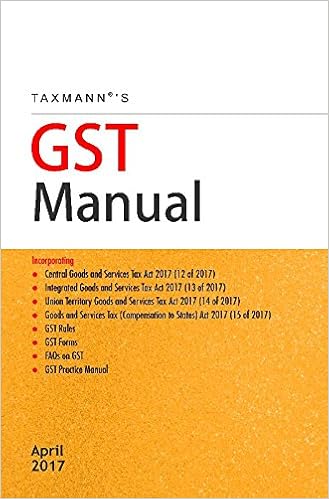Section 111 CGST Act 2017
[ Section 111 CGST Act 2017 Notified w.e.f 01.07.2017 vide Notification No. 9/2017 – Central Tax Dated 28th June, 2017 ]
Section 111 CGST Act 2017 explains Procedure before Appellate Tribunal and is covered in Chapter XVIII -Appeals and Revision
[Note : CGST Act 2017 also known as CENTRAL GOODS AND SERVICES TAX ACT, 2017 assented by the President of India on 12-4-2017 -An Act to make a provision for levy and collection of tax on intra-State supply of goods or services or both by the Central Government and the matters connected therewith or incidental thereto. ]
Procedure before Appellate Tribunal.
111. (1) The Appellate Tribunal shall not, while disposing of any proceedings before it or an appeal before it, be bound by the procedure laid down in the Code of Civil Procedure, 1908 (5 of 1908), but shall be guided by the principles of natural justice and subject to the other provisions of this Act and the rules made thereunder, the Appellate Tribunal shall have power to regulate its own procedure.
(2) The Appellate Tribunal shall, for the purposes of discharging its functions under this Act, have the same powers as are vested in a civil court under the Code of Civil Procedure, 1908 (5 of 1908) while trying a suit in respect of the following matters, namely:—
(a) summoning and enforcing the attendance of any person and examining him on oath;
(b) requiring the discovery and production of documents;
(c) receiving evidence on affidavits;
(d) subject to the provisions of sections 123 and 124 of the Indian Evidence Act, 1872 (1 of 1872), requisitioning any public record or document or a copy of such record or document from any office;
(e) issuing commissions for the examination of witnesses or documents;
(f) dismissing a representation for default or deciding it ex parte;
(g) setting aside any order of dismissal of any representation for default or any order passed by it ex parte; and
(h) any other matter which may be prescribed.
(3) Any order made by the Appellate Tribunal may be enforced by it in the same manner as if it were a decree made by a court in a suit pending therein, and it shall be lawful for the Appellate Tribunal to send for execution of its orders to the court within the local limits of whose jurisdiction,—
(a) in the case of an order against a company, the registered office of the company is situated; or
(b) in the case of an order against any other person, the person concerned voluntarily resides or carries on business or personally works for gain.
(4) All proceedings before the Appellate Tribunal shall be deemed to be judicial proceedings within the meaning of sections 193 and 228, and for the purposes of section 196 of the Indian Penal Code (45 of 1860), and the Appellate Tribunal shall be deemed to be civil court for the purposes of section 195 and Chapter XXVI of the Code of Criminal Procedure, 1973 (2 of 1974).
If you have any comments about Section 111 of CGST Act 2017 , share below your thoughts:



